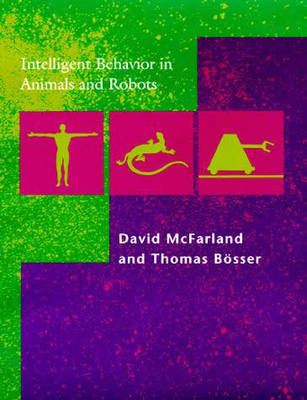Complex Adaptive Systems
1 total work
Intelligent Behavior in Animals and Robots
by David Mcfarland and Tom Bosser
This exciting study explores the novel insight, based on well-established ethological principles, that animals, humans, and autonomous robots can all be analyzed as multi-task autonomous control systems.
Intelligence takes many forms. This exciting study explores the novel insight, based on well-established ethological principles, that animals, humans, and autonomous robots can all be analyzed as multi-task autonomous control systems. Biological adaptive systems, the authors argue, can in fact provide a better understanding of intelligence and rationality than that provided by traditional AI.
In this technically sophisticated, clearly written investigation of robot-animal analogies, McFarland and Boesser show that a bee's accuracy in navigating on a cloudy day and a moth's simple but effective hearing mechanisms have as much to teach us about intelligent behavior as human models. In defining intelligent behavior, what matters is the behavioral outcome, not the nature of the mechanism by which the outcome is achieved. Similarly, in designing robots capable of intelligent behavior, what matters is the behavioral outcome.
McFarland and Boesser address the problem of how to assess the consequences of robot behavior in a way that is meaningful in terms of the robot's intended role, comparing animal and robot in relation to rational behavior, goal seeking, task accomplishment, learning, and other important theoretical issues.
